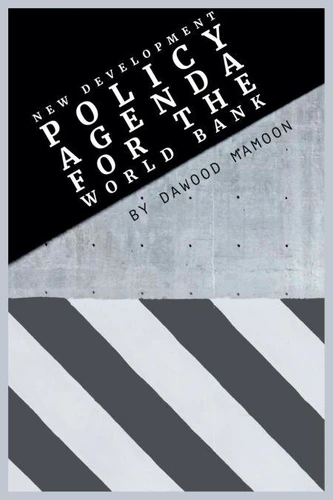New Development Policy Agenda for the World Bank
Par :Formats :
Actuellement indisponible
Cet article est actuellement indisponible, il ne peut pas être commandé sur notre site pour le moment. Nous vous invitons à vous inscrire à l'alerte disponibilité, vous recevrez un e-mail dès que cet ouvrage sera à nouveau disponible.
Disponible dans votre compte client Decitre ou Furet du Nord dès validation de votre commande. Le format ePub est :
- Compatible avec une lecture sur My Vivlio (smartphone, tablette, ordinateur)
- Compatible avec une lecture sur liseuses Vivlio
- Pour les liseuses autres que Vivlio, vous devez utiliser le logiciel Adobe Digital Edition. Non compatible avec la lecture sur les liseuses Kindle, Remarkable et Sony
 , qui est-ce ?
, qui est-ce ?Notre partenaire de plateforme de lecture numérique où vous retrouverez l'ensemble de vos ebooks gratuitement
Pour en savoir plus sur nos ebooks, consultez notre aide en ligne ici
- FormatePub
- ISBN8231226634
- EAN9798231226634
- Date de parution16/05/2025
- Protection num.pas de protection
- Infos supplémentairesepub
- ÉditeurWalzone Press
Résumé
The twentieth century was an economic miracle in material terms. Yet our institutional, ethical, and cultural frameworks failed to keep pace with material transformation. We created vast wealth but allowed deep inequalities, alienation, and ecological fragility to persist. The result: global systems that are materially abundant but morally incoherent. The book develops a new paradigm: Cultural-Ethical Economics, designed to guide development policy in ways that align with human dignity, social trust, and cultural coherence.
It draws upon and integrates insights from Nobel laureates and foundational economists who questioned the sufficiency of standard economic models.
It draws upon and integrates insights from Nobel laureates and foundational economists who questioned the sufficiency of standard economic models.
The twentieth century was an economic miracle in material terms. Yet our institutional, ethical, and cultural frameworks failed to keep pace with material transformation. We created vast wealth but allowed deep inequalities, alienation, and ecological fragility to persist. The result: global systems that are materially abundant but morally incoherent. The book develops a new paradigm: Cultural-Ethical Economics, designed to guide development policy in ways that align with human dignity, social trust, and cultural coherence.
It draws upon and integrates insights from Nobel laureates and foundational economists who questioned the sufficiency of standard economic models.
It draws upon and integrates insights from Nobel laureates and foundational economists who questioned the sufficiency of standard economic models.



